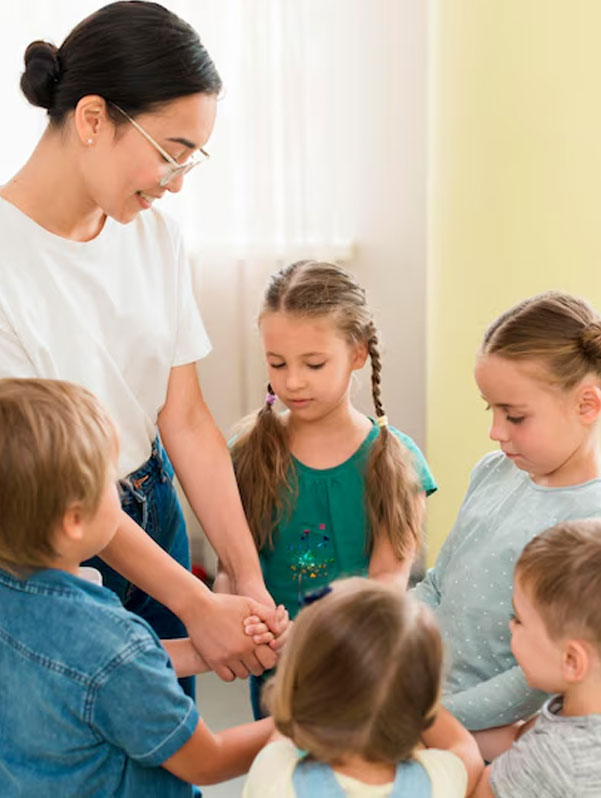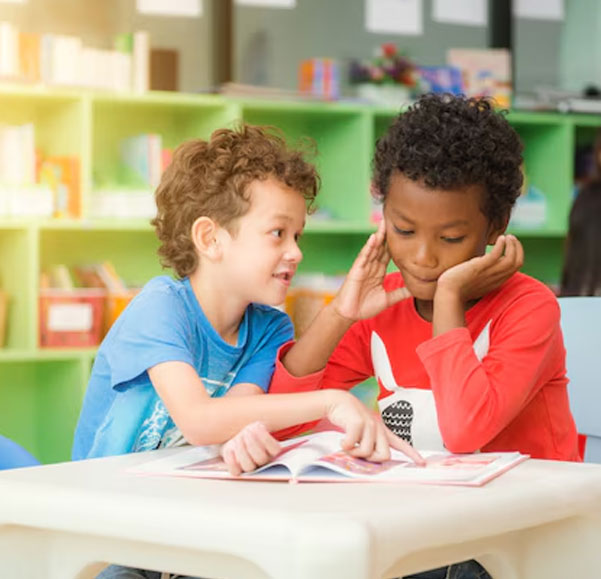In Montessori education, the Pre-Primary stage typically refers to children aged 2.5 to 3.5 years old. This stage is often called the "Casa dei Bambini" (Children’s House) and serves as the foundation for academic, social, and practical life skills.
The classroom is designed to encourage independence, exploration, and self-directed learning, with child-sized furniture and hands-on materials.
Children aged 2.5 to 6 years learn together, allowing younger children to learn from older peers while older ones develop leadership skills.
Activities such as pouring, dressing, cleaning, and food preparation help develop coordination, independence, and responsibility.


Special Montessori materials help children refine their senses through activities that teach size, shape, color, texture, and sound differentiation.
Phonetic language development and hands-on math materials prepare children for reading, writing, and arithmetic in a natural, engaging way.
Children choose their activities within a structured environment, fostering self-discipline, decision-making, and a love for learning.
Grace and courtesy lessons help children develop respect, patience, and problem-solving skills in a collaborative community.
The Pre-Primary Montessori experience lays the groundwork for lifelong learning by fostering independence, confidence, and a deep love for knowledge.